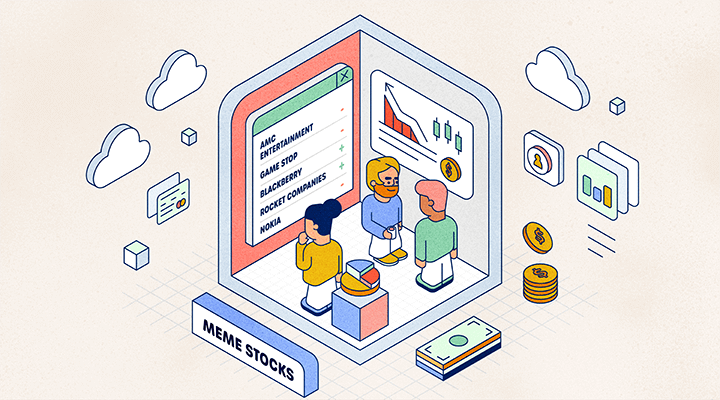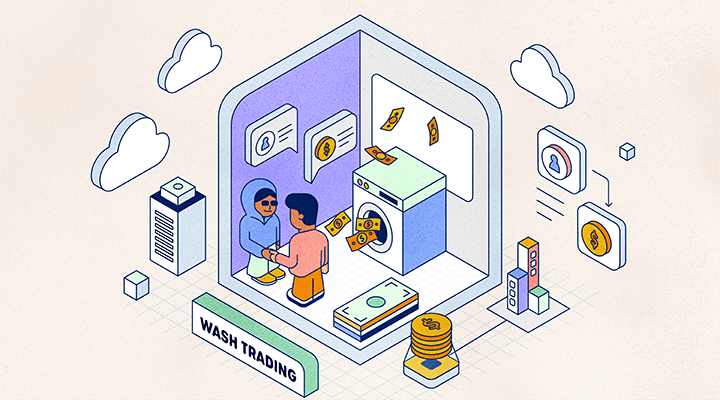The Finance Lingo To Know For 2023

Cryptocurrency crashes dominated the headlines in late 2022, when companies such as FTX and Terraform Labs got embroiled in financial trouble. The Monetary Authority of Singapore has warned against treating cryptocurrency as a form of money or investment asset due to its “extreme price volatility”.
With greater interest in financial technology (fintech) and new services in finance, here are some terms to know to keep up with conversations, and avoid any potential risks.
What Coin?
You might have heard of Bitcoin, a digital or virtual currency that uses cryptography. It is a type of cryptocurrency that can be used for secure transactions without a central authority that issues or regulates it.
What about the lesser-known terms altcoin and stablecoin?
Due to the massive popularity and influence of Bitcoin, the term “altcoin” (short for alternative coin) was coined – heh! – to refer to any other cryptocurrency that is not a Bitcoin.
One of the most well-known altcoins is Ethereum. As the second-most popular cryptocurrency, it runs on its own platform, uses a different protocol for verifying transactions, and can be used to power smart contracts on the blockchain.

Among altcoins, stablecoins are a type of cryptocurrency with prices pegged to more traditional currencies. Their main purpose is to offer all the benefits of cryptocurrency (like instant transfers and low fees) while maintaining the relative stability of real-world currencies (e.g., the US Dollar, Singapore Dollar and Swiss Franc) – making them a potentially more reliable asset to invest in.
An example of a stablecoin is TrueUSD, which is pegged to the US Dollar.
No Central Authority
Cryptocurrency is part of decentralised finance, or DeFi. This refers to any financial service (e.g., insurance, trading, and lending or borrowing) that is provided by using smart contracts on the blockchain, without involving a “middleman” intermediary, such as a regulatory authority or central bank.
Read more about DeFi on MoneySense.

Don’t Be a Laughing Stock
Meme stocks, according to the World Economic Forum, are stocks of companies that have a large online following. Meme stocks are typically bought for their popularity or to keep up with hype, not for their forecasted economic growth or for financial reasons.
Since meme stocks are likely bought by inexperienced investors for non-financial reasons, their values are more volatile and deceptive.

Follow at Your Own Risk
Finfluencers, or finance influencers, are social media influencers who discuss finance topics such as daily expenditure to investments and cryptocurrency. Finfluencers are not always experts, so take their advice at your own risk. After growing their platforms, they may partner with finance service or product providers – and may knowingly or unknowingly promote scams.

Too Good To Be True?
BNPL stands for “Buy Now, Pay Later”, the concept of purchasing an item first and paying in instalments later. One benefit of BNPL is that consumers with limited cash flow can obtain items they urgently need (e.g., wheelchairs or work equipment), and pay in instalments later. Outside of big-ticket items, GrabFood also offers this payment option for food deliveries.
BNPL is potentially dangerous for those with less financial security. The Singapore FinTech Association has worked on a code of conduct for BNPL providers to follow, with measures in place to prevent financially troubled consumers from purchasing beyond their means.

Keep Your Finances Clean
Wash trading is a shady practice where cryptocurrency is bought and sold to artificially inflate trade volume. This can be done by individuals or two parties colluding.
This illegal act aims to lure unsuspecting buyers into thinking that an asset is valuable or increasing in value. Since cryptocurrency transactions in wash trading are harder to prove and the market is unregulated, wash trading for digital assets is harder to prosecute.

To get more stories like this, subscribe to the Challenge Telegram channel.
- POSTED ON
Mar 6, 2023
- TEXT BY
Amos Ng
Siti Maziah Masramli
- ILLUSTRATION BY
Liew Xinyi









